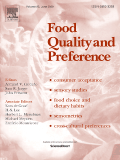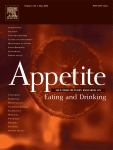
Edulia’s main objective has been “bringing down barriers to healthy eating”. The idea is that we want children (and then later as adolscents and adults) to eat healthy by choice, not because they are told to. Research by our ESRs show that Food familiarity is important to decrease food neophopia and food fuzziness Pickard, A.,…

Healthy product development The current food environment is characterized by the wide availability of unhealthy products with high sugar, fat and salt content. This constitutes a major barrier for the development of healthy dietary patterns among children and preadolescents. In this context, WP4 “Healthy Food Product Development” has explored children-driven product development, based on the…

Julia Sick (ESR3) and her team from of the University of Florence (UNIFI), Prof. Erminio Monteleone, Prof Caterina Dinnella, Dr. Lapo Pierguidi, and Dr. Sara Spinelli, published the paper named “Development of an emoji-based self-report measurement tool to measure emotions elicited by foods in preadolescents” in the international journal Food Quality and Preference. You can…

A new paper describing the role of self-perceived body weight in the relationship between weight status and mental well-being in school-aged children of 47 countries has been publised. The paper results from the secondment of Martina Galler, ESR1, at the Norwegian Institute of Public Health in the EU project CO-CREATE. The study shows that perceiving…

Martina Galler (ESR1) recently published a paper exploring the co-creation of healthy snack ideas with children through creative and enabling methods. In addition to focus groups, an online platform was explored as setting that might be highly relevant to co-create the food of the future with young people. The paper is published in Food Research…

Martina Galler (ESR1) recently published a paper exploring facial decoding for product testing with children. Tine, industry partner of Edulia, designed the chocolate milk samples used in the study. Facial decoding via machine algorithms is a relatively new method in sensory and consumer research and could be interesting in applications with children to learn about…

Little is known about fathers’ involvement in child feeding and their feeding practices. To fill this gap, Kaat Philippe (ESR7) and her colleagues at INRAE (France) and the MAPP centre (Denmark) conducted a study. They asked 582 mothers and fathers of Danish pre-schoolers to complete an online survey. With this information, Kaat and her colleagues…

Edulia researchers at UdelaR and Aarhus University came together to investigate dietary changes in the transition to parenthood among Uruguayan parents. The research extends previous work with parents in Denmark and France: https://doi.org/10.1016/j.appet.2020.104658 The idea of the paper was to expand the knowledge on barriers to healthy eating among families beyond Europe, and from diverse…

In order to tackle childhood obesity, it is important to know what contributes to weight gain in children. An eating behaviour of interest in this context is “eating in the absence of hunger” (EAH) which has been associated with increased energy intake and weight status in children. To prevent overweight and obesity children, it is…

Children have different perceptions on how they respond to taste. For example, the same concentration of bitter and sour tastes contained in one glass of grapefruit juice could be perceived differently. One child may perceive that bitterness is stronger than sourness while the other may perceive a stronger sour than bitter taste. There are also…









